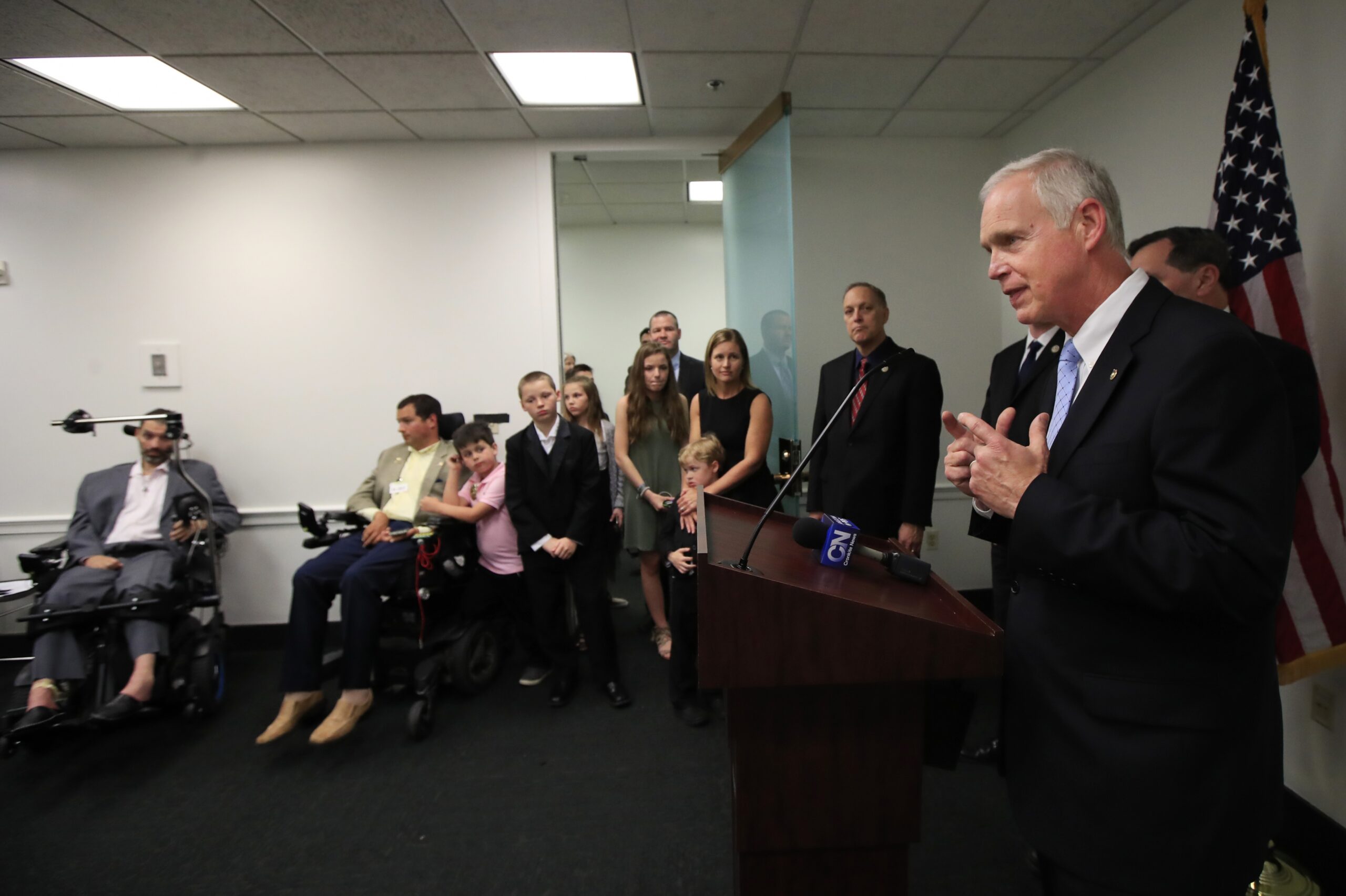U.S. Sen. Ron Johnson’s “right to try” legislation is on its way to President Donald Trump’s desk. The proposal would allow access to unapproved treatments for those with life-threatening illness.
The bill bears the name of a Wisconsin woman, Trickett Wendler, who died from ALS, or Lou Gehrig’s disease, and whose spouse supported both state and federal “right to try” legislation.
After being stalled for months, the House passed the Senate’s version Tuesday, which has broader eligibility but less U.S. Food and Drug Administration oversight.
Stay informed on the latest news
Sign up for WPR’s email newsletter.
In a statement after the bill’s passage, Johnson said, “Congress restored a little freedom and hope to terminally-ill Americans.”
The bill passed the House largely along party lines. U.S. Rep. Ron Kind joined Republicans in supporting the bill, while other Wisconsin Democrats opposed it.
The act is designed to give patients an alternative to the FDA’s expanded access program which critics say doesn’t meet the needs of dying patients.
“We participated in a couple (clinical trials) and got denied for a couple of others,” Trickett’s husband Tim Wendler told Wisconsin lawmakers last August. “Every time we went into these conversations with the doctors or scientists a little more hope would erode.”
Gov. Scott Walker signed a state “right to try” proposal in March.
FDA officials say they receive over 1,000 applications for the existing expanded access program, also known as compassionate use, and the agency authorizes the vast majority of those applications.
A number of patient groups oppose the version of the bill that passed.
“This pathway removes FDA approval and consultation and would not increase access to promising therapies for our patients because it does not address the primary barriers to access,” advocacy organizations wrote in a letter to members of the House.
The patient groups said they preferred the House bill that passed in March because it had stronger informed consent, narrower eligibility, and additional FDA oversight. They say Johnson’s bill does not include these safeguards and therefore could greatly increase the likelihood of patients being harmed by unsafe and ineffective experimental therapies.
They also say the FDA already allows access to experimental drugs under its Compassionate Use program.
“The question is how can we get patients access to unapproved drugs and we share that interest in getting that access and we have to ask ourselves what is blocking that access and this bill assumes the FDA was the stumbling block and we don’t see the evidence supports that,” said the American Cancer Society’s Cancer Action Network’s Mark Fleury.
Trump called for passage of the measure in his State of the Union address earlier this year. The proposal has drawn support from conservative groups like the Goldwater Institute.
Wisconsin is among 40 states that have debated and passed “right to try” bills.
Editor’s note: This story was updated at 3:40 p.m. Wednesday, March 23, to include comments from Sen. Ron Johnson and Mark Fleury.
Wisconsin Public Radio, © Copyright 2024, Board of Regents of the University of Wisconsin System and Wisconsin Educational Communications Board.






